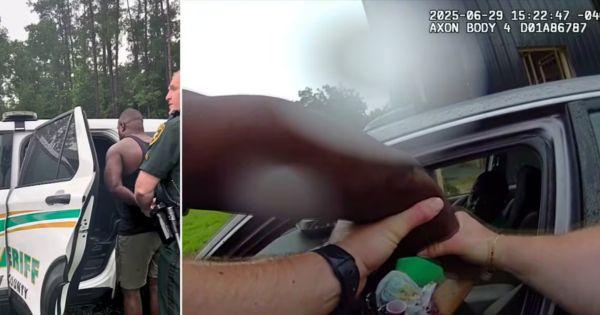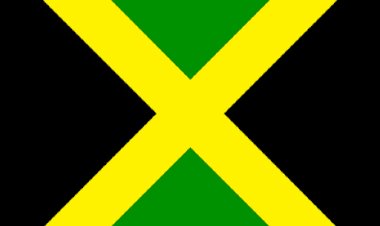Jaydan Okunola, The First Aya Bursary Recipient
By Kwaku – In November 2021 African Voice published an article entitled ‘British Transport Police Apologises For The Trauma Suffered By British Africans’. It contained a fulsome apology by British Transport Police (BTP) Chief Constable Lucy D’Orsi QPM, issued in acknowledgement of the criminalisation of several African young men in London during the 1970s by […] The post Jaydan Okunola, The First Aya Bursary Recipient appeared first on African Voice Newspaper.


By Kwaku – In November 2021 African Voice published an article entitled ‘British Transport Police Apologises For The Trauma Suffered By British Africans’. It contained a fulsome apology by British Transport Police (BTP) Chief Constable Lucy D’Orsi QPM, issued in acknowledgement of the criminalisation of several African young men in London during the 1970s by the corrupt former police officer DS Derek Ridgewell and his accomplices. Although BTWSC/African Histories Revisited, representing Britain’s African community, promptly secured an apology after my Zoom presentation ‘Police and the Criminalising of British African Youths By Numbers’, the second demand for a bursary, as a nod to restitution, took much longer to be addressed.
Four years on, the BTP-funded Aya Bursary, which was open to King’s College London law undergraduates of African/African Caribbean heritage, has materialised. The first recipient is 19 year old Jaydan Okunola.
Jaydan’s story is one of resilience and redemption. From a challenging start, he has emerged as a beacon of hope, using his experiences to uplift others and address the systemic issues he once faced. His journey underscores the power of opportunity and the importance of second chances, proving that even from chaos, remarkable futures can be forged.
Jaydan is quite open about his life, and describes his birth as being born “into chaos.” Of his biological parents, his Nigerian father was absent, in and out of prison, while his English mother and her partner were convicted of physically assaulting him at 18 months.
Having been adopted aged 3, Jaydan who had a Nigerian adoptive father, went through multiple care families, faced numerous school suspensions, and attended four secondary schools. It wasn’t until a football injury shattered his dreams of a professional football career, that he decided to focus on his studies. His grades then began to improve at his last school, Orleans Park in Twickenham, south London.
“I figured that I should kind of put that spare time to studying,” says Jaydan, following his surgery, “because I knew I had the aptitude when I wanted to.”
Apart from steering his life away from the dangers of county lines, where vulnerable minors are forced to transport drugs and money across regional boundaries, Jaydan’s concentration on his studies resulted in him achieving an A* and two As in his A-Levels exams, which exceeded predictions, and secured his place at King’s.
Interestingly Jaydan thinks he might pursue a career in politics, rather than law. However, he nevertheless believes his law studies will keep him in good stead, if he does go into politics.
“I’m someone that’s always wanted as wide a breadth of knowledge and understanding as possible, and I figured that law would give me that,” explains Jaydan for choosing to study law. “Based on the fact that it touches across loads of different disciplines, and then on top of that, I liked, you know, how analytical it is. I also like structuring arguments. So I figured that all round, it kind of ticked all the boxes for me,” he adds.
Had Jaydan not received the bursary, he might have delayed starting university, by taking “a gap year to get some money in the bank,” he says.
The bursary provides £75,000 to support tuition and living costs during the three-year LLB Law degree at King’s. The BTP has committed to only one cycle of the bursary so far. In addition to looking for potential donors to sponsor or part-sponsor future cycles, efforts are underway to persuade the BTP to continue funding the bursary, given the continuous availability of Proceeds of Crime funds, the source of the bursary’s cash. Not to mention Ridgewell’s prolonged misdeeds and harmful impact on Britain’s African community.
Ridgewell has been in the news recently, as more of the convictions of his victims through fabrication of false evidence and confessions gained through torture, have been quashed. This summer, the last member of the Stockwell Six, had his 1972 conviction quashed, following a review by the Criminal Cases Review Commission (CCRC). Ridgewell, supported by his pickpocket squad colleagues, falsely claimed the young men had attempted to rob him at knifepoint on a London tube train.
Also this summer, three men who were convicted in 1977 of various theft-related offences at a British Rail transit depot, had their convictions quashed. Interestingly, Ridgewell was transferred to investigate thefts at that depot, but soon turned to stealing along with colleagues, goods said to be worth over £1 million. He and two police officers were eventually caught and sentenced to prison in 1980 for conspiracy to steal. When the prison governor asked him why he had taken to criminality, he replied “I just went bent.” Ridgwell was serving a seven year sentence when he died in prison in 1982, aged 37.
Incidentally, Ridgewell served briefly in the British South Africa Police in Rhodesia (now Zimbabwe), but deserted soon after the country’s Unilateral Declaration of Independence in 1965. He gave the impression that he left the police there because of its racism. He described the Rhodesian police as “a military organisation designed to suppress the Africans.”
However, the slow beginning of his undoing came about with his arrest of the Tottenham Court Road Two at the eponymous tube station of two Rhodesian Jesuit students studying social work at University of Oxford. The judge in the 1973 case threw out the charges of assault on police officers and attempt to steal handbags, on account of the bizarre officers’ evidence and mode of arrest.
This is the dark history, from which the bursary comes. And its first recipient in addition to his university studies, is involved in volunteering working, helping refugees, plus he has also formed a charity, Tomorrow’s Changed Society, to give back by delivering schools-focused intervention programmes aimed particularly at “neurodivergent, trauma experienced and children from disadvantaged backgrounds.”
Growing up in a predominantly European environment, Jaydan gravitated toward his adoptive mother’s French culture and language. Only recently has he built a circle of African friends, including Nigerians, through whom he’s learning Yoruba, a language his adoptive father spoke but never taught him.
Jaydan is also deepening his understanding of Nigerian culture by watching documentaries and experimenting with traditional Nigerian recipes. “I’ve also kind of cooked some traditional Nigerian recipes,” he shares. He plans to visit Nigeria by the end of this year to experience the culture firsthand, adding, “so I can experience it in person too. Because I feel like part of me is sort of missing in that regard.”
We hope the Aya Bursary continues to support future recipients beyond Jaydan, and we urge those with the power to ensure its ongoing impact to take action.
Kwaku is an independent history researcher and posts his events at AfricanHistoryPlus.eventbrite.com.
Kindly follow us on twitter:@AfricanVoice2
The post Jaydan Okunola, The First Aya Bursary Recipient appeared first on African Voice Newspaper.























